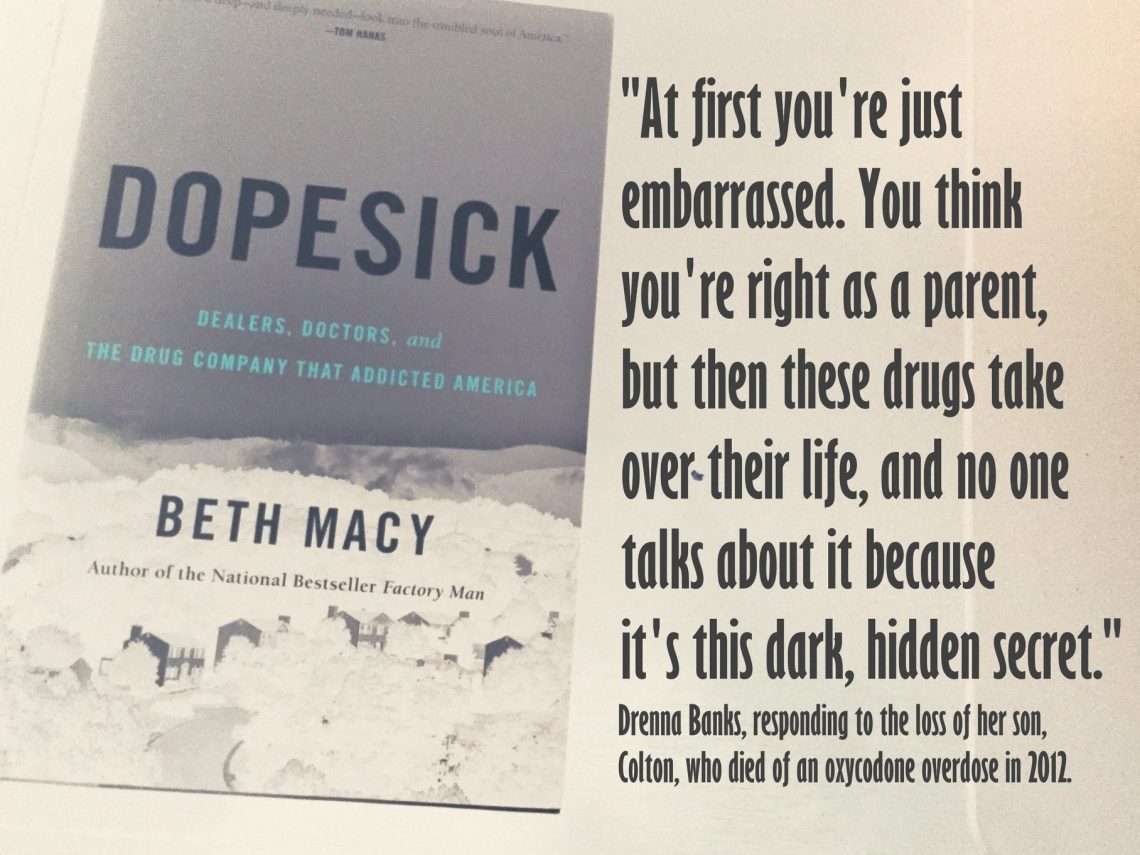
The Great American Painkiller
Between mid-January and early February, I sat down to read Beth Macy’s Dopesick, namely because it covered a subject for which I was only vaguely familiar and because opioid addiction has only just recently garnered a bigger and bigger flashlight in the American eye.
Still, Dopesick was a tough and ironically painful read for all the reasons it should be. Macy takes us into the homes of the addicted and the incarcerated, a visit that requires both a willingness and a patience to keep reading, but that may be the root of my greatest criticism, not of the book, but of the anti-intellectual, anti-informative, don’t-make-me-think-about-difficult-things society in which this book is presented.
Opioid addiction stems from avoidance. Avoidance of pain. Avoidance of discomfort. And the things that allow addicts to avoid pain or discomfort become a distracting high, requiring higher highs at each turn. So it goes with a society and a culture entrenched in visual distractions of entertainment (Netflix, sports, film, video games) that allow us to escape, for hours and days and months and years, from a world that actually needs to be confronted.
What Macy revealed, for me, was that yes, there is a serious, nagging, and undeniable epidemic of pharmaceutical drugs, drug makers, and drug dealers who impact the lives of those caught in the cycle of addiction, recovery, and relapse, but moreso, Macy left me wondering, somewhat hopelessly at times, about all those capable of making change, of turning the tide, of repairing infrastructure, of revamping health care, of addressing immigration, of dealing with international affairs, whether these individuals tasked with our biggest problems have it within themselves to patiently read a 376-page book of consequence, about any subject that might offer solutions, or suggest a higher level of empathy, or carve out the hull of our better angels.
I don’t know if the hierarchy that we elect for ourselves will ever, on the whole, be the kind of body that makes informed decisions. Perhaps they once were. Perhaps they one day will be again. But in the meantime, please read Beth Macy’s book on a crisis that requires, if not our governments, our collective willingness to enter into a conversation and contemplate a better path for those we may otherwise lose to our collective ignorance.

A Seminole in Gainesville
